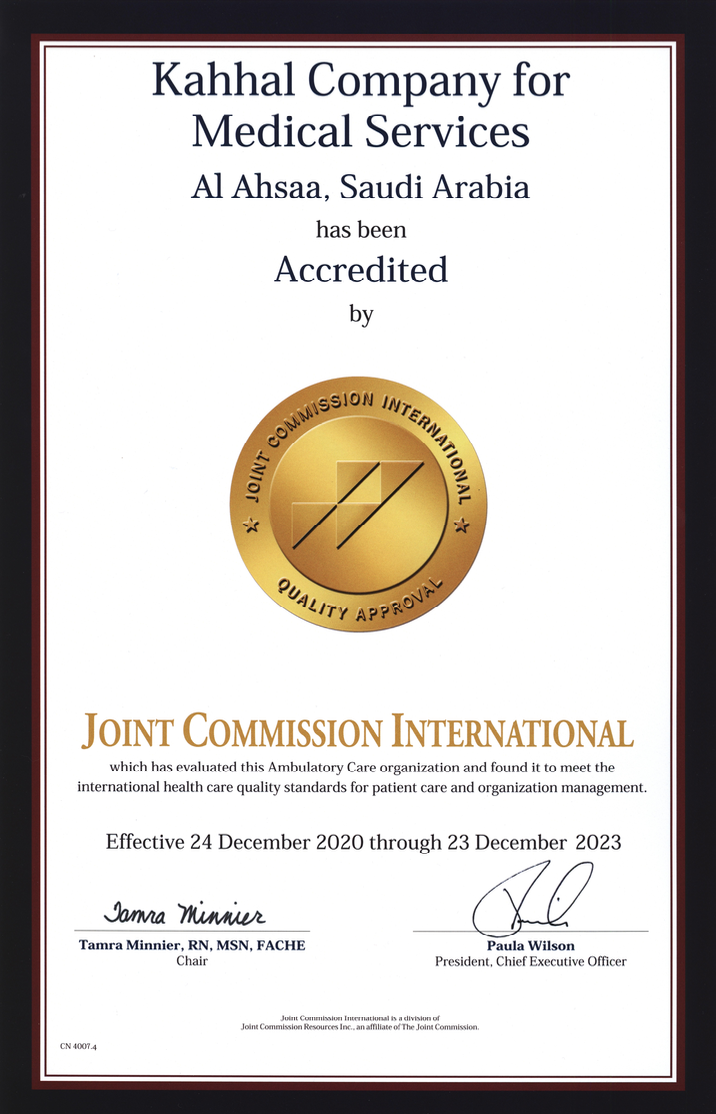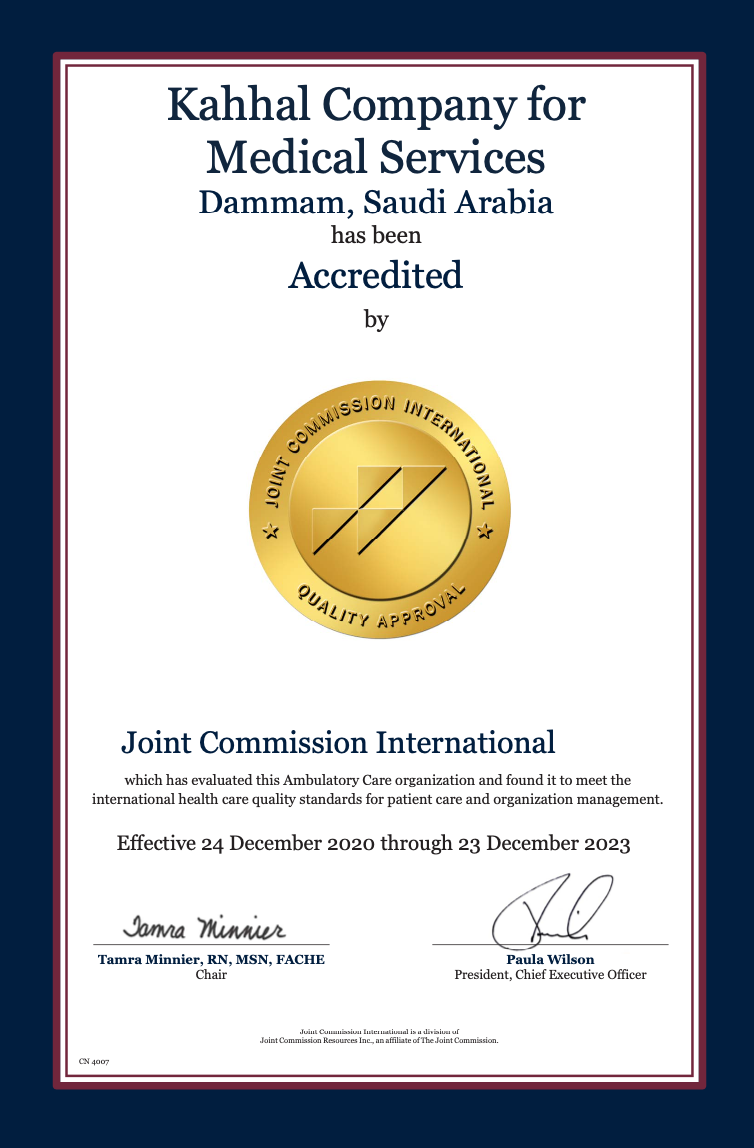

Accreditation is a process by which health care facilities are reviewed by an independent organization to determine if the institutions meet the requirements of a set of standards designed to improve the quality of care.
1- To provide a safe environment that reduces risks to caregivers and caregivers
2- To provide measurable standards for quality and patient safety
3- To detect sustainable improvements using a reliable process
4- To ensure recognition and acceptance of the success and excellence of accredited hospitals in the public
5- To improve patient satisfaction
6- To increase productivity
7- Reducing costs through standardized care
8- JCI Expectations from Accredited Hospitals
9- The Joint Commission International constantly monitors the medical and administrative performance of accredited hospitals after a comprehensive audit
10. JCI expects the hospital to identify clinical and management indicators for the main headings of the JCI criteria and to continually collect data for these indicators, for analysis and reporting, and to effectively incorporate improvement processes.
11- JCI requests and controls the results of these analyzes at regular intervals.
12. JCI may conduct unannounced inspections. During these inspections, JCI wants accredited hospitals to ensure full compliance with their standards.
13- Accredited hospitals are re-evaluated after 3 years of accreditation according to standards and criteria. According to the result of this examination, it was decided to continue or terminate the accreditation.


In 1951, the health sector's first accrediting body the Joint Commission on Hospital Accreditation (JCAH) was established with the participation of the American College of Surgeons, the American College of Physicians, the American Hospital Association, the American Medical Association and the Canadian Medical Association.
In 1987 after developing accreditation programs for health institutions other than hospitals, the Hospital Commission was renamed the "Joint Commission on Accreditation of Healthcare Institutions" (JCAHO).
The Joint Commission International (JCI) established for International Accreditation Services is a unit of the Joint Commission on Accreditation of Healthcare Organizations (JCAHO) a non-profit organization focused on promoting the quality and safety of health services.
As the international branch of the Joint Commission, JCI has worked alongside health institutions, ministries of health and global organizations in 80 countries since 1994. JCI focuses on improving the safety of patient care through accreditation and certification services. The Joint Commission International is a world-renowned panel on healthcare quality and patient safety. JCI auditors are well-trained clinicians who advocate for patient safety. Infection control, drug safety, patient care and treatment, patient assessment and facility safety, and improving healthcare quality and patient safety are their focus areas. JCI Standards are developed by healthcare professionals from around the world and tested around the world. JCI accreditation decisions are made by an international panel of healthcare service experts.
In June 2011, JCI was checked against its audit process, quality and standards and was accredited by the International Society for Quality in Healthcare (ISQua). Thus, the reliability of the JCI audit and accreditation process has been proven in the international arena. ISQua accreditation ensures that JCI standards and processes meet the highest essential standards for surveying healthcare organizations.
1- To provide services of the same quality in all hospitals and comprehensive clinics.
2- To improve, monitor, evaluate and survey facility safety according to patient profile.
3- Patient confidentiality must be maintained at the highest level.
4- The health service must be provided in accordance with the principle of patient rights and duties.
5- The probability of desirable medical outcomes increases and the risk of unwanted outcomes decreases.
6- Supporting and inspecting the multidisciplinary health care plan.
7- The management of risks that may arise with regard to the safety of patients and employees and the minimization of risks is provided.
8- Patients and their relatives trust and participation in health care is provided through implementation and information processes.
9- Through periodic clinical and management risk measures, potential failures are detected, prevented, and the process improved.
10- The current and potential training needs of patients and their relatives about health problems are identified and training is provided accordingly.
11- Effective communication and coordination is provided between health care staff and patients/relatives.
12- It is provided that patients and their relatives adapt to the new condition, meet their expectations and increase their satisfaction.